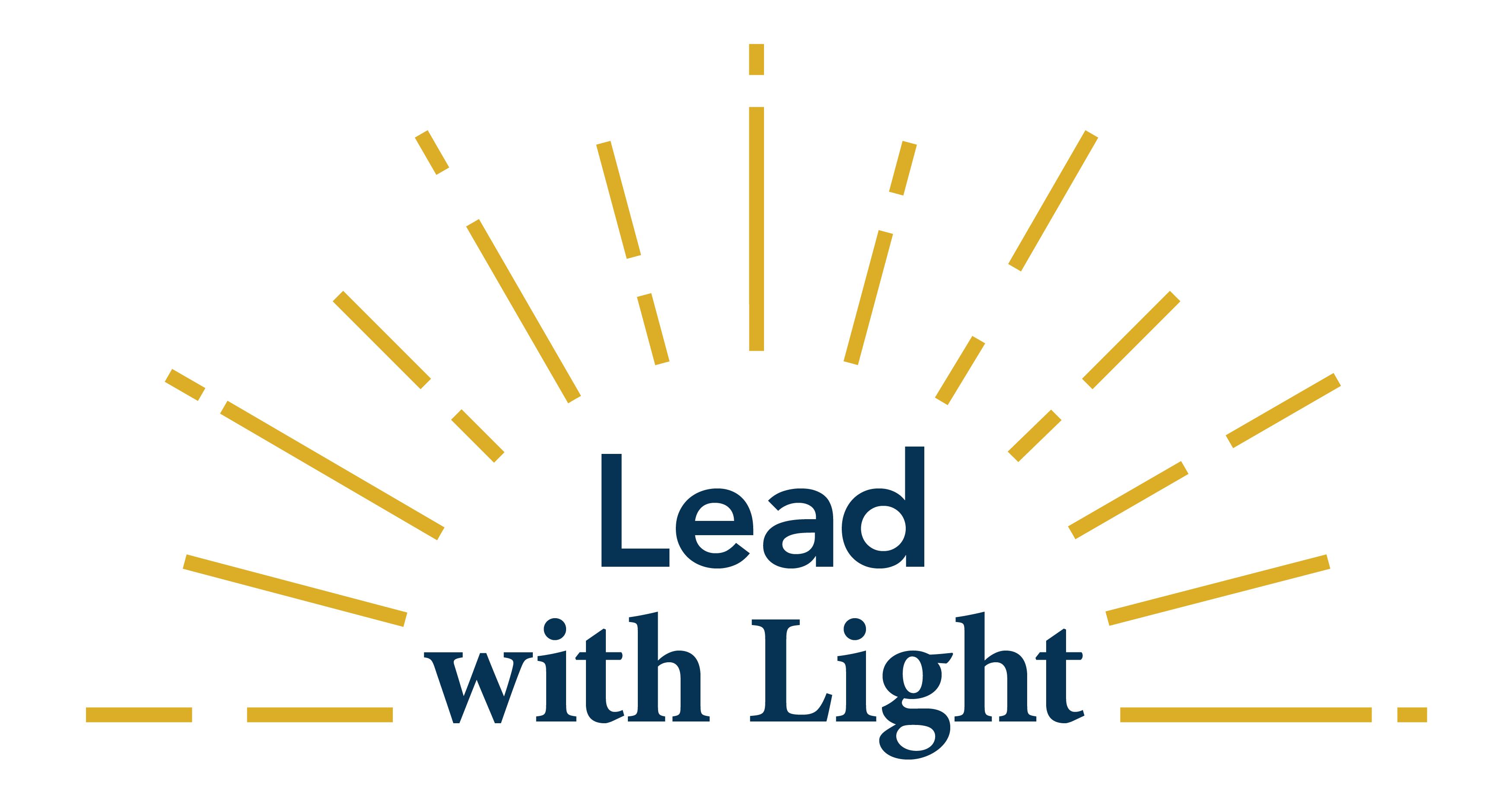
The Power of Forgiveness
As leaders of light, it’s guaranteed that we will find ourselves in situations that test our patience. Dealing with broken promises, missed deadlines, substandard performance, and blatant disregard for important organizational values (just to mention a few!) are all part and parcel of the leadership experience.
Unfortunately, when these things happen to us, they generate a whole host of counterproductive emotions, not the least of which include things like anger, resentment, and betrayal.
If left unaddressed, these emotions can fester and have serious consequences—not only for us as leaders of light, but for our people and our organizations as well.
Forgiveness Defined.
Put simply, forgiveness is the intentional decision to let go of the anger and resentment towards those who have wronged us. It is an active, conscious, and voluntary choice that involves changing our feelings, attitudes, and behaviors towards those who have harmed us.
But, but, but…what about the egregious disregard that we’ve experienced? Are we just supposed to sweep that under the carpet and pretend like it never happened?
Here’s an important insight.
Forgiveness doesn’t mean that we agree with what’s happened or that we overlook or discount the issues at hand. If we are going to grow and get better, we’ll have to successfully address and overcome these issues.
It does, however, mean that we are making the choice to do the work in a healthy, positive, and functional way—one that ensures the best outcomes for all involved.
Never forget, forgiveness can’t necessarily change the past. But it will change the future. And that’s why it’s so powerful.
Why Forgiveness Is So Difficult.
Forgiving others can be hard because it means we need to let go of emotions that are associated with things that are very important to us.
For example, when a team repeatedly assures us that a crucial project deadline is going to be met and it doesn’t happen, it’s human nature for us to feel let down (and that’s putting it mildly.)
Never forget, forgiveness can’t necessarily change the past. But it will change the future. And that’s why it’s so powerful.
We feel like we’ve been taking advantage of. We wonder if we are being taken seriously as a leader. We want the guilty party(ies) to be held accountable. And perhaps worst of all, we question whether we can really take our teammates at their word.
The more important the project, the more intense the feelings. The more intense the feelings, the deeper the hurt. The deeper the hurt, the longer the memories. And the longer the memories, the more likely the demise of the relationship(s).
It’s not hard to see why leaders that lack the capacity to forgive struggle throughout their careers.
And this leads us to an important conclusion.
One of the most significant leadership challenges is not only handling difficult situations but also letting them go.
And that’s where forgiveness comes in.
Why Forgiveness Matters
When leaders of light practice forgiveness, it significantly benefits their teams and their organizations in a variety of ways.
1. Forgiveness builds trust:
When leaders of light demonstrate forgiveness, it shows our team members that we are willing to give second chances, which encourages openness and trust within the group.
2. Forgiveness reduces conflict:
Holding onto resentment can fuel negativity and conflict within a team. By forgiving, leaders of light can help resolve disputes and move forward constructively.
3. Forgiveness improves team morale:
Leaders of light who are willing to forgive create a more positive and supportive work environment, boosting team morale and engagement.
4. Forgiveness promotes personal growth:
By acknowledging mistakes and offering forgiveness, leaders of light create an environment where individuals feel safe to learn from their errors and improve their performance.
5. Forgiveness releases negative energy:
Holding onto anger and resentment can drain a leader’s energy and focus. Forgiveness allows us to let go of negativity and channel our energy towards positive actions.
6. Forgiveness demonstrates leadership maturity:
The ability to forgive, even when someone has wronged us, shows our emotional intelligence and maturity.
Forgiveness: The Practice that Moves Us from Hurting to Healing.
In a world turned upside-down, forgiveness is often seen as a weakness. But for leaders of light, we know that it’s a core component of the code by which we live. And by practicing it, not only can we become better leaders, but we can also become better colleagues, better friends, and better people.
See Light, Be Light, Spread Light.
Up Next: Do You Have a Problem with Forgiveness?
Stay tuned!
Until Next Time...
We’ve picked some articles we think you might like! Click below to read more.

Do You Have Traction?
For years, researchers have been examining the routines of high-performing leaders. Obviously, it should come as no surprise that best-in-class leaders do a lot of things right.

4 Great Resources To Help You Get Forgivingly Fit
One of the core tenets of being a leader of light is practicing forgiveness. In fact, it’s part of our fifth principle: Talk, Walk, and Teach Civility, Kindness, Forgiveness, and a Love for All.

15 Minute Fixes: How To Get Better at Forgiving Others
When it comes to forgiveness, every leader of light needs to have a powerful exercise that can be employed at a moment’s notice to help those in your charge.
About Lead with Light
Lead with Light is an initiative that aims to equip current and emerging leaders with a reimagined approach to servant leadership.
Our ultimate vision is to grow and develop thousands of Leaders of Light to ignite a movement to see light, be light, and spread light in ways only each can.


